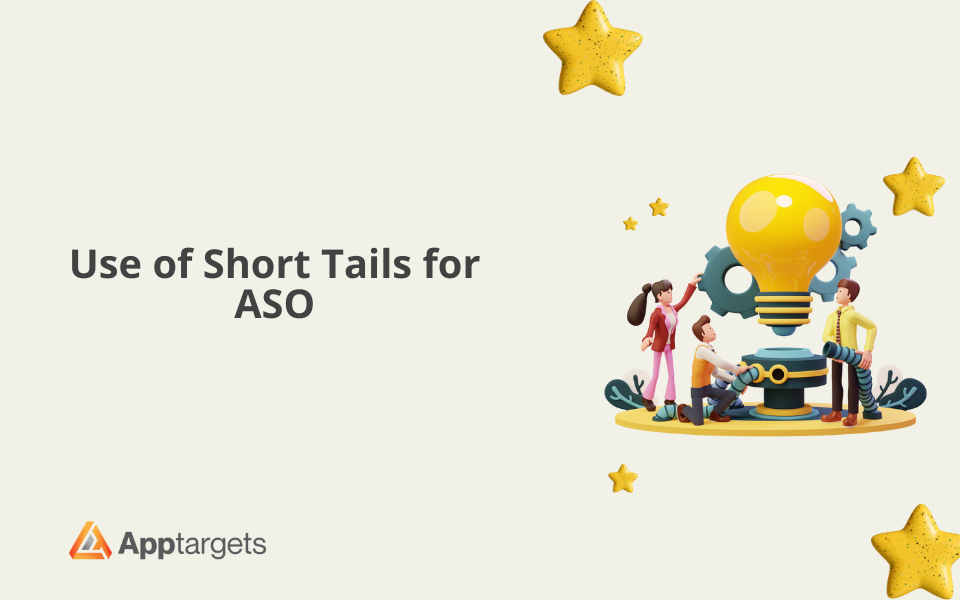Use of Short Tails for ASO
Short tail keywords, characterized by their high search volume, are often overlooked in ASO strategies due to their general nature and inherent optimization challenges. Take, for example, the keyword 'clothes,' which is overly broad and fails to effectively target specific user intents. Utilizing such generic terms may not yield desirable results for an app's visibility or relevance. Instead, opting for more specific long-tail variations like 'men's clothes' or 'men's clothes for winter' can significantly enhance the app's discoverability and relevance to users seeking more precise information or products. By leveraging long-tail keywords, app developers can better align their optimization efforts with user intent, thereby increasing the likelihood of attracting qualified traffic and driving conversions.
Short Tail vs. Long Tail Keywords
The short tail is not very preferred by app developers because the search volume is high for general keywords. On the contrary, long-tail keywords attract more attention because they are specific keywords. In this case, it is likely to achieve more successful results during app optimization. Because a search using the keyword 'clothes' can lead to different results. For example, it can be both difficult and misleading for users who want to buy men's clothing and are searching for a suitable app to access an optimized app with the keyword ‘clothes’. Because 'clothes' also apply to women's clothing. For this reason, using a long tail keyword always gives more successful results.
Ranking for Short Tail Keywords
Using short-tail keywords alone often falls short in yielding desired results. However, to effectively leverage short-tail keywords for success, it's essential to incorporate them strategically within the context of long-tail keywords. By doing so, you broaden the scope of your keyword targeting, increasing the likelihood of achieving both better indexing and higher download rates. It's important, though, not to overdo keyword repetition during optimization for the App Store, as this could lead to penalties or diminished user experience. Through this balanced approach, you can optimize keyword usage while driving organic traffic and maximizing your app's visibility and success.
Do Short Tail Keywords Cause Negativity?
Using short-tail keywords often leads to less effective results compared to long-tail keywords. Due to their broad nature, short-tail keywords tend to generate higher competition and lower conversion rates. Therefore, it is imperative to prioritize long-tail keywords whenever possible.
Long-tail keywords, being more specific and targeted, not only help in capturing niche audiences but also result in higher conversion rates. These keywords cater to users with more specific search intent, allowing your content to align closely with their needs and preferences. As a result, when users find content that precisely matches their queries, they are more likely to engage with it and take desired actions, leading to improved conversion rates. Additionally, long-tail keywords often indicate a higher level of purchase intent, as users searching for these terms are typically further along in the buying process. By leveraging long-tail keywords effectively throughout your content and optimization efforts, you can achieve more successful outcomes, making it the most ideal method in optimizing keyword usage for better SEO performance.
In case this topic catches your interest, it's worth taking a look using missed keywords for ASO
